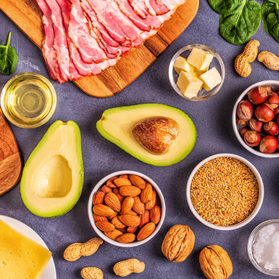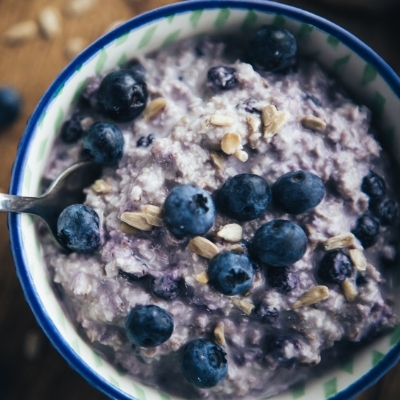
The Buzz: Nutrigenomics
Can the emerging nutrition science of nutrigenomics help guide health professionals to more personalized wellness recommendations?

Can the emerging nutrition science of nutrigenomics help guide health professionals to more personalized wellness recommendations?

Turns out, the secret to health and wellness may be a “choose-your-own adventure” story. Learn more about how you can personalize your plate for sustainable changes to dietary behavior.

When New Year’s Resolutions have a (sad) history of failure, why do we keep attempting sweeping changes? Perhaps setting your sights on something smaller will lead to bigger results in the long run.

Nutrition can be “right” in many different ways — take time to learn what may work for your unique needs.

Kitchen Clutter – can you Marie Kondo your way to a better diet?

A hybrid of the words “flexible” and “vegetarian,” this low rules pattern of eating uses vegetarianism as the base of all meals and allows you to flex by occasionally adding meat or fish to your meal.

The Mediterranean Diet has gained national media attention for many years and is regularly cited as one of the healthiest diets to follow.

Once a diet used primarily in clinical settings as part of a treatment plan for children with epilepsy, the ketogenic diet (aka “keto”) has become mainstream for tackling anything from weight loss to migraines.

The Whole 30Ⓡ Program has become a popular way to “reset” or kick-start a wellness journey — whether it’s to gain more energy or finally kick your sugar-after-every-meal habit.

Counting macronutrients (or “macros”) has been a popular dieting tactic in bodybuilding groups for years. However, recently the amped-up version of calorie counting has gone mainstream.

Intermittent fasting (IF) ― a way of eating that includes set periods of eating and not eating ― has caught on as a possible weight and health management tactic.

Let’s be real: When life gets overwhelming, it’s much easier to reach for a candy bar than it is a bowl of vegetables.